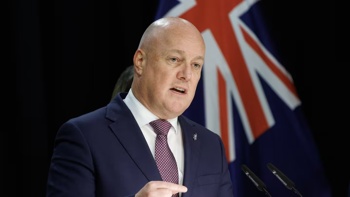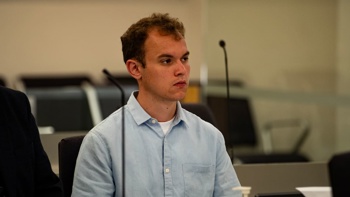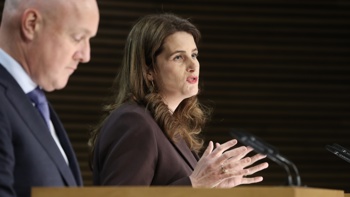- 97% of family doctors’ clinics in Auckland belonging to the country’s biggest Primary Health Organisation plan to increase patient fees due to insufficient funding.
- ProCare’s Bindi Norwell said practices face financial pressures and some are using bank overdrafts to pay staff.
- Health Minister Shane Reti says he’s determined to alleviate pressure on family doctor clinics, but GPs remain disappointed by lack of progress.
A survey of 100 GP clinics across Auckland has revealed almost all of them plan to increase their patient fees amid concerns about insufficient Government funding and political “rhetoric” about making tangible improvements.
The family doctors’ clinics surveyed belonged to the country’s biggest Primary Health Organisation (PHO), ProCare, which has a network of 143 practices in the wider Auckland region. There are a total of about 430 GP clinics in Auckland.
The figures, provided exclusively to the Herald, back up research released by the General Practice Owners Association of New Zealand in September.
ProCare’s group chief executive Bindi Norwell told the Herald the planned fee hikes come amid crippling financial pressures for clinics and inadequate Government funding.
“Practices have been left with little choice – raise their fees, reduce their services, or close their doors,” she said.
 ProCare group CEO Bindi Norwell says some people struggle to afford a GP visit and the situation may get worse. Photo / Mike Scott.
ProCare group CEO Bindi Norwell says some people struggle to afford a GP visit and the situation may get worse. Photo / Mike Scott.
Of the practices surveyed, 39% of them have already increased their fees and 47% planned to do so in the next three months.
Most of the remaining clinics would increase prices within the next six months, or just after six months as only three practices said they would not increase fees within the next year.
This means within a year, 97% of all clinics belonging to ProCare would have increased patient fees.
Norwell said very low-cost access (VLCA) practices, which get extra funding to offer cut-price rates to reduce inequality, could see the cost per patient without community service cards go from $19 to $29.50 per consult.
She said if a patient currently paid $50 for a consult, the new price could rise to $65 and if a patient is already paying over $65, the biggest fee increase she’d heard of in Auckland was $90.
She said some patients already struggled to afford a GP visit, and this will make matters worse.
“That means they might not go to their doctor, and they’ll put it off until they’re really sick, and then they’ll end up in emergency department in the hospital.”
She said a functional primary care system was critical.
“For every dollar that we spend in primary care, it saves the hospital system about $13 to $14.”
In September, the Herald revealed patients were queuing in the cold outside a VLCA clinic in Ōtara from 6am.
Norwell said an increasing number of clinics in Auckland were borrowing money to pay staff.
“When I go and visit them and they say, ‘I have to use my personal bank overdraft to pay my team here’, that’s a heart-wrenching moment.”
Health Minister Shane Reti has acknowledged the pressure on primary care.
‘I am determined to make inroads’
For years GPs have argued the way they’re subsidised is broken, and government-commissioned reports support this.
GPs are funded according to a system known as capitation, which funnels money to a practice based on the number of patients enrolled but the payments are not based on ethnicity, deprivation or the complexities of dealing with an ageing population.
Health Minister Shane Reti told the Herald he acknowledged the longstanding pressure on primary care and was “determined to make inroads” to improve the situation.
“For several years GPs have asked for structural change to the capitation formula so that funding better follows patients and aligns better with patient complexity.”
The Labour Government commissioned the Sapare Report in 2022, which found general practices receive less revenue than the cost of providing care.
Reti said he backs the conclusions of the report and is taking action.
“I agree with its findings and have already tasked Health NZ with developing an implementation plan,” he said.
He said the 4% funding boost for GPs this year was the “biggest increase of any large provider group”.
‘It’s just rhetoric’
 Dr Allan Moffitt, a clinical director at ProCare and GP at The Fono in Manurewa, says putting fees up even modestly at practices like his would be a barrier to many families. Photo / Mike Scott
Dr Allan Moffitt, a clinical director at ProCare and GP at The Fono in Manurewa, says putting fees up even modestly at practices like his would be a barrier to many families. Photo / Mike Scott
Allan Moffitt, who has been a GP for almost 40 years and works at The Fono in Manurewa, said he was disappointed by the lack of progress.
“There have been promises about increasing the funding for general practice that have never come through. We’re a bit cynical now about whether that’s ever going to occur,” he said.
He said putting fees up even modestly at practices like his would be a barrier to many families, which could have serious implications in terms of screening for cardiovascular risks and detecting cancer.
He believed there had been years of promises from successive governments about change, but nothing had materialised and now the situation had become so untenable, some practices were closing their doors.
“We have the rhetoric around investing in primary and community care so that we save cost in the secondary care system and improve [the country’s] health status, but it’s just rhetoric. They’re actually not doing that.”
Michael Morrah is a senior investigative reporter/team leader at the Herald. He won the best coverage of a major news event at the 2024 Voyager NZ Media Awards and has twice been named reporter of the year. He has been a broadcast journalist for 20 years and joined the Herald’s video team in July 2024.
Take your Radio, Podcasts and Music with you









